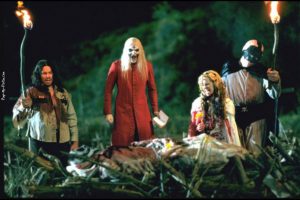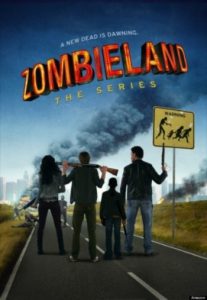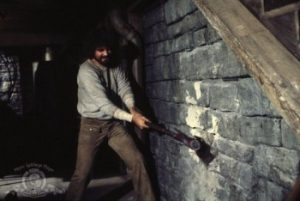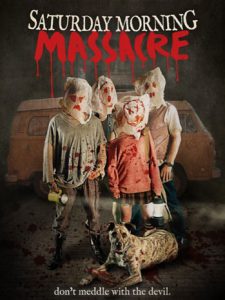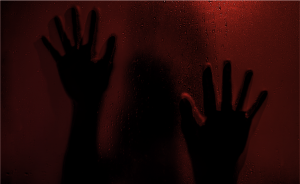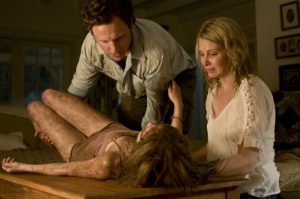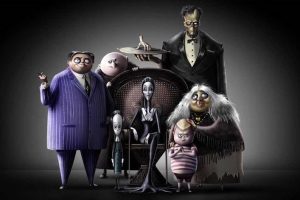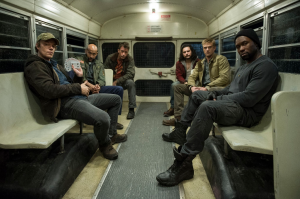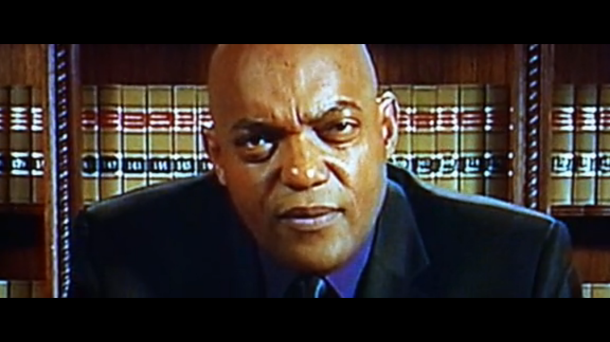
Zombie Zeitgeist: The Influences & Culture of Zombie Movies
From its humble beginnings in 1968, the zombie film has flourished into an international phenomenon. In the hands of its inventor George A. Romero, the films were full of social commentary. Whether those themes were racism, consumerism, military infiltration, terrorism, or simply the bleak nihilistic vision of humanity; Romero made his voice heard through the grunt of the undead. Now, the popularity of the sub-genre carries its own commentary about us.
George Romero and John Russo’s partnership took the concept of the controlled undead (akin to voodoo rituals) and placed them at the top of the food chain. Throughout Night, Dawn, Day, Land, Diary, and Survival the closest we come to learning the cause of the epidemic is “a space probe.” This invites our own interpretation, though in the end, it doesn’t matter. Life as we once knew it has ended. Groups of stragglers band together in order to survive the dead and each other. The concept of family is mutated: once your husband, wife, mother, father, brother, sister, son or daughter turns they must be killed again. Governments become obsolete and our primal drives for survival are triggered. This becomes life after the dead have risen.
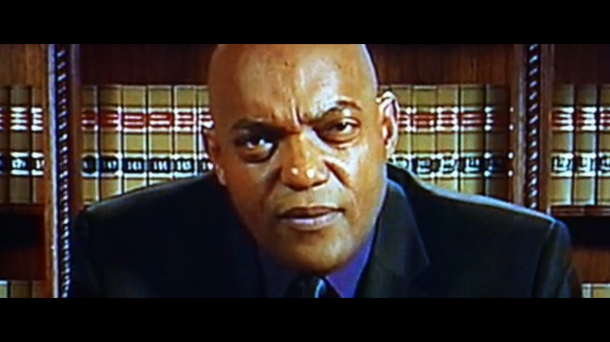
Dan O’Bannon and John Russo’s satire of Romero’s films The Return Of The Living Dead (1985) provides a more terrifying turn of events. The zombies here cannot die, even a bomb that reduces them to ash and smoke causes rain that seeps back into the cemeteries which begins the cycle again. While Romero’s zombies were stiff with rigor mortis, O’Bannon’s are fueled by pain and anger. They run to find brains. Eating a living brain is the only thing that helps to subside the pain of being dead. Danny Boyles’ infected in 28 Days Later are also ferocious. They are filled with rage and their only outlet is to destroy anything in their path. In 2004, Zack Snider remade Dawn Of The Dead and in his version the living dead were again fast and furious. This cinematic evolution toward a faster zombie is not just a byproduct of our attention span, but also a way of revealing just how quickly the modern world can be taken away from us.
The slow zombie is still present and they cause a true threat in groups. Zombies are not just the myth of horror films anymore, they have shuffled their way into every form of media. Shaun Of The Dead (2004) created the zom-com, which Zombieland and Warm Bodies followed. Though Warm Bodies is more of a romantic zom-com. Jeremy Garner’s amazing low-budget debut, The Battery, looks at the dynamics of companionship in an undead world. Resident Evil is an extremely popular action zombie franchise – whether you’re a bigger fan of the games or the movies. The dead have invaded every medium: games, music, comic books, transformed our classic literature, and dominated our TV. The Walking Dead shows higher audience numbers with each beginning to a season and each ending to one. To top it off, they made a mainstream big-budget action film out of the zombie apocalypse. World War Z is the apex of the zeitgeist, but what does this say about us?
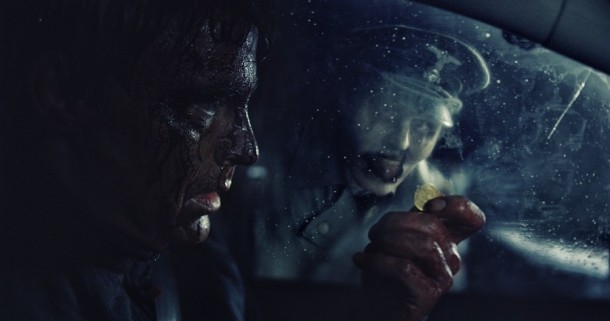
This is not just an American infatuation, it is a global one. With films like: Goa Goa Gone (2013), Juan Of The Dead (2011), La Horde (2009), They Came Back (2004), Dead Snow (2009), Dead Snow: Red vs. Dead (2014), Dead Set (2008), The Dead (2010), the Rec series beginning in 2008, Last Of The Living (2009), Undead (2003), and Mutants (2009) the concept of the zombie has become ingrained within all of us, no matter where you are in the world.
Years ago, if we were to ask a random group of people what they would do in the case of a zombie outbreak, many of them would have thought we were crazy. Horror fans love coming up with survival scenarios and that is unchanging. But now, you can ask anyone, and instead of a blank stare they’ll rattle off a list of preliminary questions for your hypothetical situation. The first question is always: “are they fast or slow zombies?”
“Whoever fights monsters should see to it that in the process he does not become a monster. And when you look into the abyss, the abyss also looks into you.”
Friedrich Nietzsche from Beyond Good and Evil
The social commentary that once came from the films is now coming from the masses who consume the media. As we ended the 2000s the economic turmoil in America had created four avenues that horror was to be expressed: found footage films, remakes, independently financed, and zombie films. Of the four economically safe ventures, only the zombie film broke through to find mass appeal. The overwhelming allure of zombie fiction is how it presents us the idea of a RESET button.
As people who’ve slaved away at the same job for more than a decade became victims of downsizing, the apocalypse in any form becomes a bright future. These films once fed our fears about global annihilation, but now tend to feed our desire for it. In the first and second seasons of The Walking Dead, people were either team Rick or team Shane. Arguments ensued about how to survive and lead, these conversations became commonplace. Daryl became the rebel we all wished we could be. At this point, the Center For Disease Control created an emergency readiness campaign designed in the style of a zombie outbreak. It has become part of our vernacular – even children who have never been exposed to zombie media know to destroy the brain to kill the ghoul. We are obsessed with putting ourselves to the test. What kind of person would I be if I were trying to only survive?
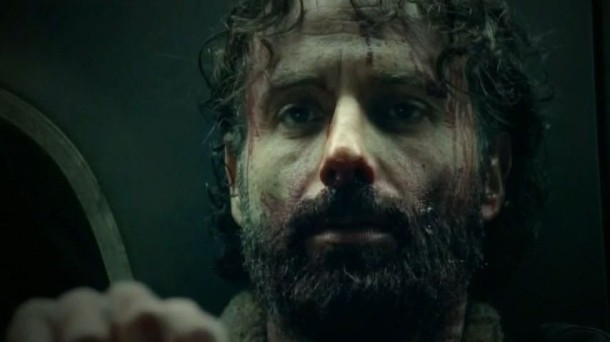
More people can relate to base survival, this is a major reason for apocalyptic appeal. When everyone fears losing their jobs or the jobs that they have can merely allow them to live from payday to payday, a fantasy world in which we are devolved to our primal instincts can actually help us through the night. To hunt, gather, protect, find shelter, defend our meager possessions, and procreate all seem like more meaningful tasks than worrying about profits during the first fiscal quarter.
It is possible that unconsciously we feel as though the zombie epidemic has already happened. We struggle for survival the same way our beloved characters do, albeit, our survival looks a little different. Against an economic downfall we battle for our needs and desires. The two of them, normally exclusive from each other, both represent our media controlled servitude toward consumerism. We are force fed ideas of what our necessities should be. The zombie of modern cinema is still the all consuming icon of western civilization, but the survivor has evolved into the voice of the millennium. Whatever your survival scenario entails, it is the enthusiasm behind your ideas that shows at some point you’ve thought about Armageddon as an optimistic alternate reality.
Do you believe survival media is a perfect outlet for those of us who are fed up with the current status quo?




![Best Indie Horror Films [ Part 2 ]](https://www.horror-movies.ca/wp-content/uploads/2021/04/absentia-610x343-2-300x169.jpg)
